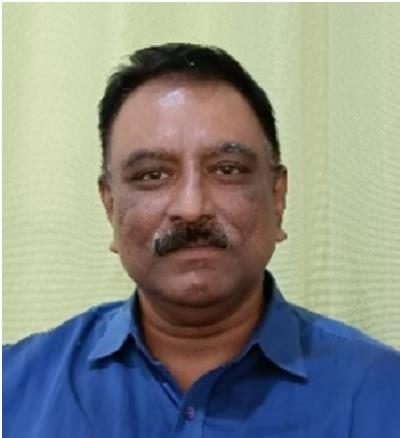COVID-19 & children: Unmasking the reality
Often, what we humans propose, nature disposes. I would like to lead your attention to a crisis in making and relay the importance of safer and healthier planet for our future generations.
Masks have become an essential part of our lives during the COVID-19 outbreak. But we often find the potentially virus-laden fabrics soiling the road corners and beaches, only to end up in landfills. This adds to contamination of water resources and finally results in severe health and environmental hazards, putting lives of children in danger.
The Jawaharnagar area in Hyderabad, which adjoins the largest landfill in the city is a glaring example of this. It represents a global issue, adding another chapter of woe in the lives of underserved children.
These masks remain until the polypropylenes of the single-use variants break down into nano-plastics and unmask an eco-tragedy.
Jawaharnagar is the site to host the city’s largest dumping yard, spread over hundreds of acres of land. The locality hosts about 95 slums, while roughly 25 of them are directly affected by its presence.
The marginalised are left to endure the suffering as they inhale and ingest the pollution they did not create. Both air and groundwater are poisoned in the area. Children are born with deformities, and there are recorded evidence of older people developing serious health risks.
This is how a certain section of people are always at the receiving end of ‘institutionalised’ neglect.
It is a short rope for the children, who are suffering from the brunt of an unhygienic living. There are many stories of distress that calls us to act immediately on this burning issue.
Aishwarya (name changed), a 17-year-old girl, living in Giriprasad Nagar has been suffering from a chronic liver disease for five years. Running from one hospital to another, her health condition has not improved. Rather she has developed life-threatening complications that clouded her future.
There are many such heart-wrenching stories as initial observations have showed more than 50 children have developed chronic diseases in the last 6 years owing to the contamination from the dump yard.
Having said that, it is these very people who pick the wastes (medical included), produced by the city people, and constantly put themselves at risk. A close look at the social fabric suggests that sanitation work is intrinsically a job for the socio-economically marginalised sections.
When all the waste goes unsegregated, it is a particular fraction of the society who are levied with the responsibility to pick these with bare-hands and separate the litter without proper protection.
They are, hence, susceptible to much higher risks of contamination. If only those who majorly contribute to the eco-massacre replace their existing masks with the bio-degradable variants (as they enjoy the privilege), there would be a possibility of preventing more dump from reaching the landfills or poisoning the marine world.
Nobody ever imagined that the surge in face-mask production would become so high that it would add to the climate crisis. Single-use plastics and straws were in focus till this pandemic introduced the masks.
The scale of non-biodegradable medical litter that is been created is alarming, and its plastic footprints are here to stay. Hence, it is important we know how to discard this waste responsibly. Now with COVID threats looming large, the children have become even more vulnerable.
According to a recent study, India generates a maximum of 4.64 billion mask wastes a week, based on which we rank the highest in the amount of polypropylene generated through these masks — a massive 12,258 tonnes per week.
The N-95 respirators come with double the polypropylene composition than that of the surgical variety and both options take a whole 450 years to decompose.
This perhaps bore promptly about the waste management system which needs to be automated and mechanised. In situations where direct involvement of humans is there, we need to provide them with a protective gear from the hazardous waste they handle.
We must be a little more humane and appreciate the role of people who takes care of our surroundings.
While we hold our children a little closer, we must not forget that our responsibilities are not just restricted and limited to ourselves as our footprint is far reaching. Being a little more introspective on our action should open up a realisation, that those who keep us safe are also parents of the next generation.
Views expressed are the author's own and don't necessarily reflect those of Down To Earth.


